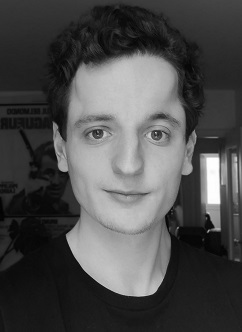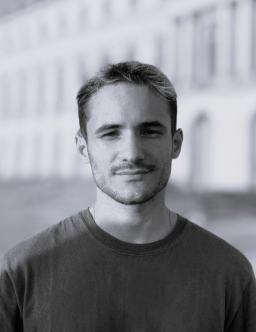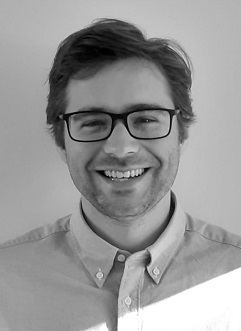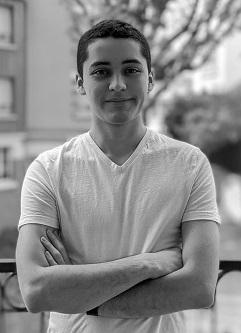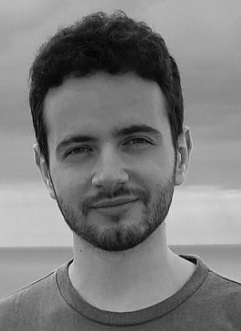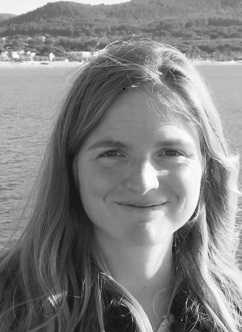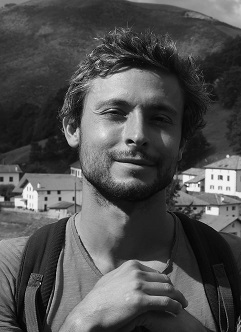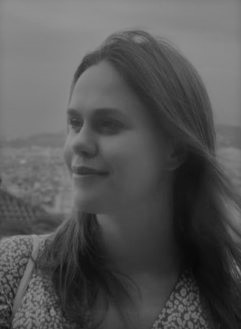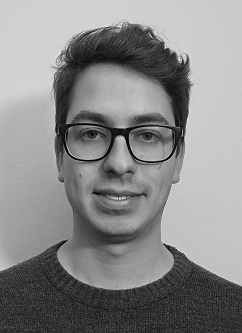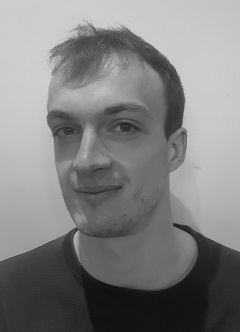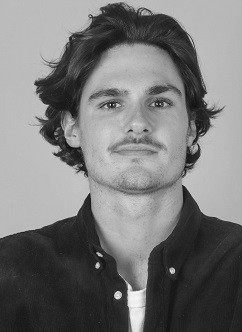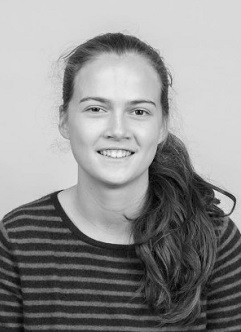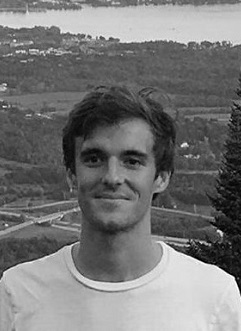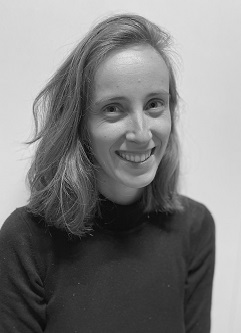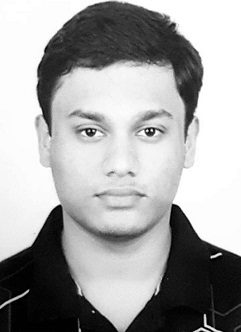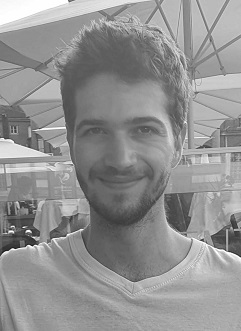MARTIN Simon
simon.martin [at] inria.fr
Short bio
- Master in Probability and Statistics (Université d’Orsay)
- Master in Soft Matter Physics (ICFP)
Thesis title
Energy Landscapes and Dynamics of Deep Neural Networks.
Short abstract
Despite the breakthrough of machine learning in the past decades, the theory behind neural networks and their learning dynamics is still poorly understood compared to their practical achievement in various domains. One promising approach is to rely on the strong analogy between the behaviors of physical disordered systems and deep neural networks. The goal of this PhD is to combine applied mathematics and statistical physics tools in order to solve optimization problems in high dimension. More precisely, the student will focus on the learning dynamics of deep neural networks by using methods inspired from spin glasses theory.
ZARHALI Othmane
Université Paris Dauphine – PSL | CNRS
othmane.zarhali [at] dauphine.eu
Short bio
- Ecole des Mines de Nancy, Engineering degree, major: Applied mathematics
- Ecole Polytechnique / Sorbonne Université, Msc Probabilités et finance (ex DEA El KAROUI)
Thesis title
Multifractal and rough volatility processes in statistical finance. Link with market microstructure.
Short abstract
Log S-fBm models, which reconciles rough volatility models and multifractal volatility models, has laid the foundations for estimation methods common to both universes. Its applications and challenges are the focus of this thesis.
GORTANA Luca
Paris Sciences & Lettres – Complexité du vivant (Complexity of life)
luca.gortana [at] agroparistech.fr
Short Bio
Engineering degree, AgroParisTech
Thesis title
Machine Learning approaches for joint image and omics analyses in cancer
Short abstract
Spatial transcriptomics is a technology that uses spatial analysis to measure the positional context of mRNAs in a tissue. The combination of tumour imaging (e.g. pathological slides) and spatial transcriptomics provides extremely rich information, potentially leading to a better understanding of the mechanisms of tumour progression. My project aims to develop new analytical concepts and tools for analyzing multi-modal omics and spatial omics data of cancer patients, to achieve this goal.
Ivan LERNER
ivan.lerner [at] inria.fr
Short bio
- Diplôme d’etude supérieur de Santé Publique, Université Paris Descartes, 2020
- Double-cursus Médecine-sciences, 2016, Université Paris Descartes
- Master 2 de science-cognitives, 2013, École normale supérieure, Paris
Thesis title
Predictive modelling using structure learning to handle distribution shift in Electronic Health Records.
Short abstract
I develop machine learning models tailored to Electronic Health Records, which are multiple multivariate time series, with the particularity of being of mixed type and irregularly sampled. These models are generalized Gaussian Process models, and I write and evaluate kernels that encodes structural assumptions on the data generating process.
David ROBIN
david.a.r.robin [at] gmail.com
Short bio
Diplôme de l’ENS (Informatique) – Master MVA, École Normale Supérieure de Paris
Thesis title
Efficient parameterization of neural networks for structured data.
Short abstract
My research focuses on guaranteeing that machine learning systems learn to exploit structures present in the data, such as known and approximately known symmetries. Most successful architectures, by design very generic to deal with diverse data inputs (visual, acoustic, textual), fail to do so and thus incur a large computational overhead which could be lightened by exploiting the underlying symmetry. Doing so systematically would yield less resource-hungry architectures with predictive power comparable to the more generic methods.
Matthieu FUTERAL-PETER
matthieu.futeral [at] inria.fr
Short bio
Msc in Engineering at ENSAE Paris
Thesis title
Exploration of multilingual and multimodal word embeddings.
Short abstract
The aim of this PhD is to study the advantage of visual information for the alignment of word embeddings in several languages, in particular for low-resource languages. Such multimodal embeddings may be particularly useful in scenarios where the text itself is partial or degraded, and where additional context (in the form of video data) could therefore be beneficial.
QUENNELLE Sophie
Hôpital Necker-Enfants Malades
sophie.quennelle [at] protonmail.com
Short bio
- Master 2 – Informatique biomédicale, Sorbonne Université, Paris
- Docteur en cardiologie – Université Paris Cité
Thesis title
Deep representation of the patient’s electronic health record for clinical event prediction and patient similarity.
Short abstract
Pediatric cardiologist at Necker-Enfants Malades in Paris interested in health data extraction and reuse for clinical research. Her PhD project started in October 2020 supervised by Pr. Anita Burgun and co-supervised by Dr. Antoine Neuraz. Its objective is to propose a deep learning model to provide a reliable representation of the patient electronic health record.
LAZARD Tristan
tristan.lazard [at] mines-paristech.fr
Short bio
Master 2 Mathematics and applications, UPMC
Thesis title
Deep learning for digital pathology: from full to no supervision.
Short abstract
Digital pathology involves studying digital versions of tissue slides to make diagnoses or derive prognostic markers from cells and tissue features. Deep learning can automate some diagnostic steps or help discover associations between phenotype and genotype. However, these slides are large, with full magnification versions weighing up to 16GB uncompressed, which therefore raises specific challenges. The goal of this PhD is to determine the best supervision methods to extract information from these slides.
HEMFORTH Lisa
lisa.hemforth [at] icm-institute.org
Short bio
Master in Biomedical Engineering (BioImaging) from BME Paris (Arts et Métiers, Université de Paris, PSL, Télécom)
Thesis title
Deep learning for rating of atypical anatomical patterns on MRI data.
Short abstract
Incomplete hippocampal inversion (IHI) is an atypical anatomical pattern of the brain found in 15 to 20% of the general population which’s origins and link to different pathologies are still unknown. The aim of this project is to develop automatic rating methods based on anatomical criteria to apply them to big databases which would prove difficult to annotate manually. Using this data, we will perform genome wide association studies as well as heritability studies and study correlations to different pathologies.
BRUNELLI Filippo
filippo.brunelli [at] inria.fr
Short bio
- Bachelor degree in Mathematics – University of Trento
- Master degree in Mathematics – University of Pisa
Thesis title
Graph algorithms for temporal graphs and transport networks.
Short abstract
Temporal graphs arose with the need to better model contexts where the appearance of interactions or connections depends on time, such as epidemic propagation or transport networks. While classical notions such connectivity and shortest paths have been extensively studied in static graphs there is still room for improvement in the temporal case.
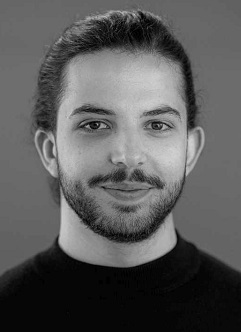
Theo Bodrito / Doctorant - équipe WILLOW / Centre Inria de Paris
BODRITO Théo
theo.bodrito [at] inria.fr
Short bio
Engineer’s degree (Mines Paris)
Thesis title
Deep Learning for Exoplanet Detection.
Short abstract
The goal of this thesis is to develop machine learning models and algorithms for detecting exoplanets by using direct imaging techniques.
BONTE Thomas
thomas.bonte [at] mines-paristech.fr
SHORT BIO
Ingénieur Civil des Mines de Paris – Mines ParisTech
THESIS TITLE
Artificial intelligence for the analysis of label-free microscopy.
SHORT ABSTRACT
Deep learning algorithms outperform traditional methods for common image analysis tasks, with powerful architectures that have been developed recently. The goal of this PhD is to leverage these algorithms to provide tools for biologists in order to help them in their studies. Such deep learning methods will help them save time, avoid tedious annotation or simplify their experiments in their daily studies.
LUCIANO Antoine
antoine.luciano [at] dauphine.psl.eu
Short bio
Master MASH – Université Paris-Dauphine
Thesis title
ABC methods for PDE
LOIZILLON Sophie
sophie.loizillon [at] icm-institute.org
Short bio
Engineering Degree Bordeaux INP – Université de Bordeaux
Thesis title
Deep learning for assisting diagnosis of neurological diseases using a very large-scale clinical data warehouse.
Short abstract
The aim of this thesis is to design and validate deep learning methods for computer- assisted diagnosis of neurological disorders using a very large dataset (over 100,000 patients) from the AP-HP data warehouse.
YAZDAN PANAH Arya
arya.yazdan-panah [at] icm-institute.org
Short Bio
Diplome d’ingénieur, Grenoble INP Phelma
Thesis title
Deep learning for the analysis of medical images in multiple sclerosis.
Short abstract
Multiple sclerosis (MS) is a chronic disease of the central nervous system with both an autoimmune and a neurodegenerative component. Conventional MRI techniques poorly predict disability worsening, leading to research exploring molecular imaging with PET and new biomarkers, such as choroid plexuses (CPs), which have been proposed as a neuroinflammatory biomarker along the entire disease course. This project aims to develop deep learning methods for automatic processing of MRI data to study CP segmentation and perfusion changes, as well as to explore the clinical course of patients based on the combination of different information.
DUBOIS-TAINE Benjamin
benjamin.paul-dubois-taine [at] inria.fr
Short Bio
- Bachelor in Computer Science – McGill University
- Master 2 – Université Paris-Saclay
Thesis title
Continuous Optimization and applications.
Short abstract
We study continuous optimization problems under different forms, from smooth first-order methods to relaxation of combinatorial problems, with a strong focus on theoretical guarantees. Applications on satellite imagery are also explored.
ORTHOLAND Juliette
juliette.ortholand [at] icm-institute.org
Short bio
- Master, Sorbonne University
- Engineer, Mines Paristech
Research project
Modelling changes of dynamic over longitudinal data.
Short abstract
The objective is to develop models for longitudinal data and events in the context of neurodegenerative diseases. The models could then be used for prediction and/or for the description of the pathology.
MOHAPATRA Biswesh
biswesh.mohapatra [at] inria.fr
Short bio
Integrated Master of Technology in Computer Science Engineering from IIIT Bangalore
Research project
Improving multimodal dialogue systems through conversational grounding.
Short abstract
This project plans to dive deep into the issues regarding conversational grounding. The thesis intends to do the following – 1) It will investigate why modern neural networks trained on vast amounts of data are unable to solve the phenomenon of conversational grounding in current dialogue systems. 2) It will investigate old approaches to conversational grounding for neural network-based models. 3) It will look into the role of nonverbal behavior such as eye gaze and head nods in conversational grounding, and how insights from cognitive science studies of these phenomena can be integrated into deep learning approaches. 4) The project aims to then build computational models that take conversational grounding into account and help the state-of-the-art conversational models like BlendorBot [5] or dialoGPT [6] to generate more consistent dialogues. 5) It will also develop methods to quantify and test the phenomenon of conversational grounding. 6) Finally, it will evaluate the success of these models in human-chatbot conversation, by looking at whether users are more successful in human-computer collaborative tasks.
CREMESE Robin
robin.cremese [at] pasteur.fr
Short bio
Master’s degree – INSA Toulouse
Thesis topic
Visualization and live segmentation from medical CT scans and MRIs: a new approach mixing probabilistic learning and Virtual reality.
Short abstract
Development of learning methods for optimal path planning in a constrained environment. Reinforcement Learning methods as well as physical simulations will be studied. Possible applications to the medical domain for the preventive planning of operations.
NISHIMWE Lydia
lydia.nishimwe [at] inria.fr
Short bio
- Bachelor of Science in
Mathematics and Computer Science, Université Grenoble Alpes
- Master of Engineering in Mathematics and Computer Science, École Centrale de Nantes
Thesis topic
Robust Neural Machine Translation.
Short abstract
Neural machine translation models struggle to translate texts that differ from the “standard” data commonly used to train them. In particular, social media texts pose many challenges because they tend to be “noisy”: non-standard use of spelling, grammar and vocabulary; typographical errors; use of emojis, hashtags and at-mentions; etc. I aim to develop new methods to better translate these texts.
